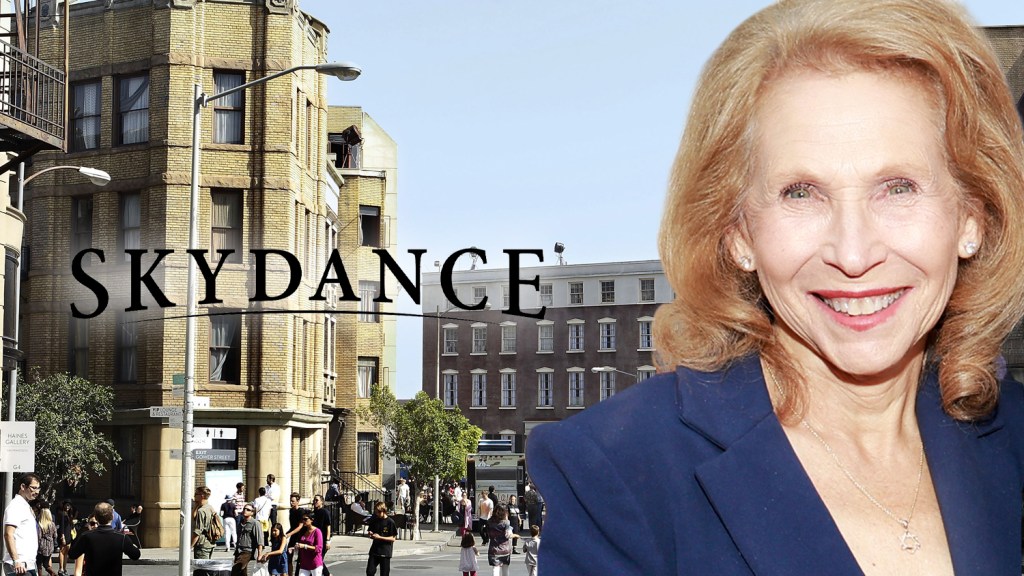
Getty Images
As Paramount Global approaches Tuesday’s annual shareholder meeting and a high-stakes employee town hall the next day, new details emerge about Skydance Media’s latest acquisition bid.
Skydance, led by David Ellison, has been vying for months to take control of Paramount, had softened its offer in recent days to allay the concerns of non-voting shareholders. In the current scenario, these shareholders would be able to receive $15 per share, a 26% premium to the company’s stock price on Friday. Sources close to the discussions confirmed the proposed terms to Deadline after The Wall Street Journal and Bloomberg reported them earlier on Sunday.
In a two-step transaction, Skydance would first acquire National Amusements, which controls nearly 80% of Paramount’s voting stock but only about 10% of its equity value. The second step would see the company inject cash into Paramount, which would then acquire Skydance. These are of course only broad outlines, as the specific structure of the new entity is the subject of much back and forth. A report from WSJ that National Amusements has received offers from other potential buyers, including that of producer Steven Paul valuing the company at around $3 billion.
While many Hollywood filmmakers, including James Cameron, have spoken out in favor of the Skydance deal, a separate storyline involving private equity giant Apollo Global Management and Sony Pictures Entertainment has attracted many fans on Wall Street. The prospects for the Apollo/Sony option seem to have dimmed in recent days. SPE chief Tony Vinciquerra told Deadline last week that talks were “progressing” between the parties, but he also declined to cite Paramount or other M&A opportunities during a speech at a recent Sony investor presentation.
Even though Skydance’s offer has been improved several times and a special committee of Paramount’s board of directors has reportedly given its approval, some sticking points remain. Perhaps most important is indemnification, the official term for who would support the company if shareholders or other stakeholders decide to sue over the merger. In recent months, as Skydance and its backers, including RedBird Capital, sought to strike a deal, the idea of Class B (non-voting) shareholders suing National Amusements CEO Shari Redstone, has become a realistic threat. A source told Deadline late Sunday that this could potentially derail the deal, as could haggling over a “go-shop” clause that could allow Paramount and National Amusements to seek a better deal than Skydance’s.
The New York Times reported Sunday on the remaining obstacles to a deal.
Representatives for Skydance, Paramount and Redstone declined to comment.
Both the shareholder meeting and town hall are expected to be important moments for the three-pronged CEO office set up after Bob Bakish’s ouster earlier this spring. No acquisition news is expected to be announced at the meeting, although the company’s post-Bakish strategy is expected to become a bit clearer. The CEO duties are split between Brian Robbins, chairman and CEO of Paramount Pictures and Nickelodeon; George Cheeks, president and CEO of CBS; and Chris McCarthy, president and CEO of Showtime/MTV Entertainment Studios and Paramount Media Networks. Each delivered brief remarks on Paramount’s quarterly earnings conference call in April, but did not take questions from Wall Street analysts, instead promising to provide more details on their strategic vision soon. “Soon” officially arrives this week.
During the shareholders’ meeting, which will take place virtually, executives will make a presentation to investors. They should talk about it on Wednesday during a public meeting with employees, eager to find out more about management’s plans. While Paramount’s recent history has been filled with dramatic moments, the current storyline has taken on an existential dimension. “There’s a lot of emotion because of Shari’s family heritage,” a source observed. “This only adds to an already very complex financial situation to resolve.”
While uncertainty clouds Paramount, having a troika at the top also introduces a new unease among the rank and file. Multiple sources within the company described to Deadline an increasingly stressful atmosphere as three senior executives who have gradually moved up the ranks in recent years are now also responsible for the company’s profile on Wall Street. While Robbins, Cheeks and McCarthy seek to make an impression, each has far more experience in entertainment than in financial operations or corporate governance. As they collectively replace Bakish amid widespread speculation about the company’s future, the intensity of the effort has spread across their respective silos.
Shares of struggling Paramount have fallen 17% this year as investors worry about its efforts to profit from streaming, even as linear television continues its inexorable decline. The shares are worth about a third of what they were in 2019 after Redstone’s long-planned reunion of Viacom and CBS finally became a reality.
The company last month successfully renewed its distributions with Charter, the top U.S. pay-TV operator, without the devastating power outages that hit Disney during a battle with Charter last summer.
“We expected at least some longer-tail networks to be dropped, so we view this part as a win for Paramount,” MoffettNathanson analyst Robert Fishman wrote in a recent note to clients, adding that the financial aspects of the agreement remain unknown. “Of course, the total rate Charter agreed to pay Paramount for the entire network portfolio, including CBS, Paramount+ ad-tier, Showtime Linear and cable networks, will determine the true degree of gain or loss. Maintaining transportation at the expense of accepting a significant discount from previous affiliate rates would be equally detrimental to future cash flow.